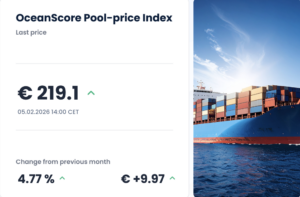While the maritime industry focuses on major regulatory developments like the EU ETS and IMO’s upcoming global measures, a smaller but potentially significant initiative has quietly taken effect in the Horn of Africa. Djibouti carbon pricing is now a reality. Launched through Presidential Decree in March 2023 and now fully operational, it represents Africa’s first national carbon pricing mechanism specifically targeting international shipping.
Why This Small Scheme Deserves Attention
At first glance, Djibouti’s initiative might seem limited in scope. The small nation’s carbon registry targets vessels above certain thresholds: those with DWT over 3,000 tonnes, GT over 500 tons, or container capacity exceeding 300 TEU. But dismissing this development would be shortsighted for several reasons.
First, Djibouti punches above its weight in maritime terms. As a critical gateway to landlocked Ethiopia and a strategic location on one of the world’s busiest shipping routes, the Port of Djibouti handles significant vessel traffic. More importantly, this initiative appears to be gaining traction across the African continent, with Gabon reportedly preparing to follow suit.
The Mechanics: Simple but Comprehensive
Djibouti’s approach is refreshingly straightforward compared to some regional schemes. The registry operates on a “polluter pays” principle, requiring what it terms “Obligors” – primarily international shipping companies and aviation operators – to account for and mitigate their carbon footprint.
Key features include:
- Carbon pricing at USD 17 per tonne of CO2e – notably higher than many voluntary carbon markets but lower than the EU ETS
- Voyage cap of USD 7,500 for commercial maritime operations, designed to preserve the port’s economic competitiveness
- 50/50 allocation principle – only half of a voyage’s emissions are attributed to Djibouti, with the remainder allocated to the origin or destination country
- Phased implementation – initially requiring full carbon contribution payments, transitioning to a 70/30 split between carbon contributions and mandatory offsetting from July 2025
The system allows for either fuel consumption reporting or the use of IMO-recognised emission factors, aligning with established maritime practices
A Continental Movement in the Making
What makes Djibouti’s registry particularly noteworthy is its apparent connection to broader African Union initiatives. As Albrecht recently put it, “It might be easy to overlook Djibouti, but that would be a mistake. Gabon is set to follow, and this appears to be part of a wider African Union proposal.”
This observation highlights a crucial point often overlooked in maritime decarbonization discussions. While the industry rightly focuses on global and major regional schemes, the proliferation of national carbon pricing mechanisms, particularly those implemented country by country rather than as coordinated blocks, could create significant compliance complexity.
Implications for Maritime Operations
For shipping companies, Djibouti’s registry introduces several practical considerations:
Immediate compliance requirements: Vessels calling at Djibouti must now report movements and associated carbon footprints monthly, with mitigation payments due within three months.
Cost implications: While the USD 7,500 voyage cap limits financial exposure for most commercial operations, the requirement still represents a new operational cost for routes serving East Africa.
Administrative burden: The registry requires detailed reporting of vessel specifications, voyage distances, and carbon calculations, though Djibouti does offer to handle reporting on behalf of obligors.
Precedent concerns: If other African nations implement similar schemes with varying requirements, compliance complexity could multiply rapidly.
The Bigger Picture
Djibouti’s initiative reflects broader trends in climate policy, where smaller nations are taking unilateral action rather than waiting for global consensus. The registry explicitly aims to be “a model for all countries on the continent wishing to establish their own national carbon initiatives.”
This bottom-up approach to maritime emissions regulation presents both opportunities and challenges. On one hand, it demonstrates a growing global commitment to shipping decarbonization. On the other, it risks creating a patchwork of competing requirements that could complicate international trade routes.
Looking Ahead
While Djibouti’s carbon registry may not yet rank among the top concerns for most shipping companies, it deserves attention as a potential harbinger of regulatory developments across Africa and other regions. The initiative’s emphasis on international best practices and transparent governance suggests a serious intent to create a lasting framework.
For the maritime industry, the key lesson is the importance of monitoring regional developments beyond major regulatory centers. As smaller nations implement their own carbon pricing mechanisms, the cumulative impact on global shipping operations could prove more significant than individual schemes might suggest.
The question isn’t whether Djibouti’s registry will single-handedly transform maritime emissions regulation – it won’t. Rather, it’s whether this model will proliferate across the continent and beyond, creating new compliance landscapes that shipping companies will need to navigate alongside existing and emerging global frameworks.
As the maritime industry continues its decarbonization journey, keeping watch on developments like Djibouti’s registry isn’t just prudent risk management; it’s essential strategic planning for an increasingly complex regulatory environment.





















































